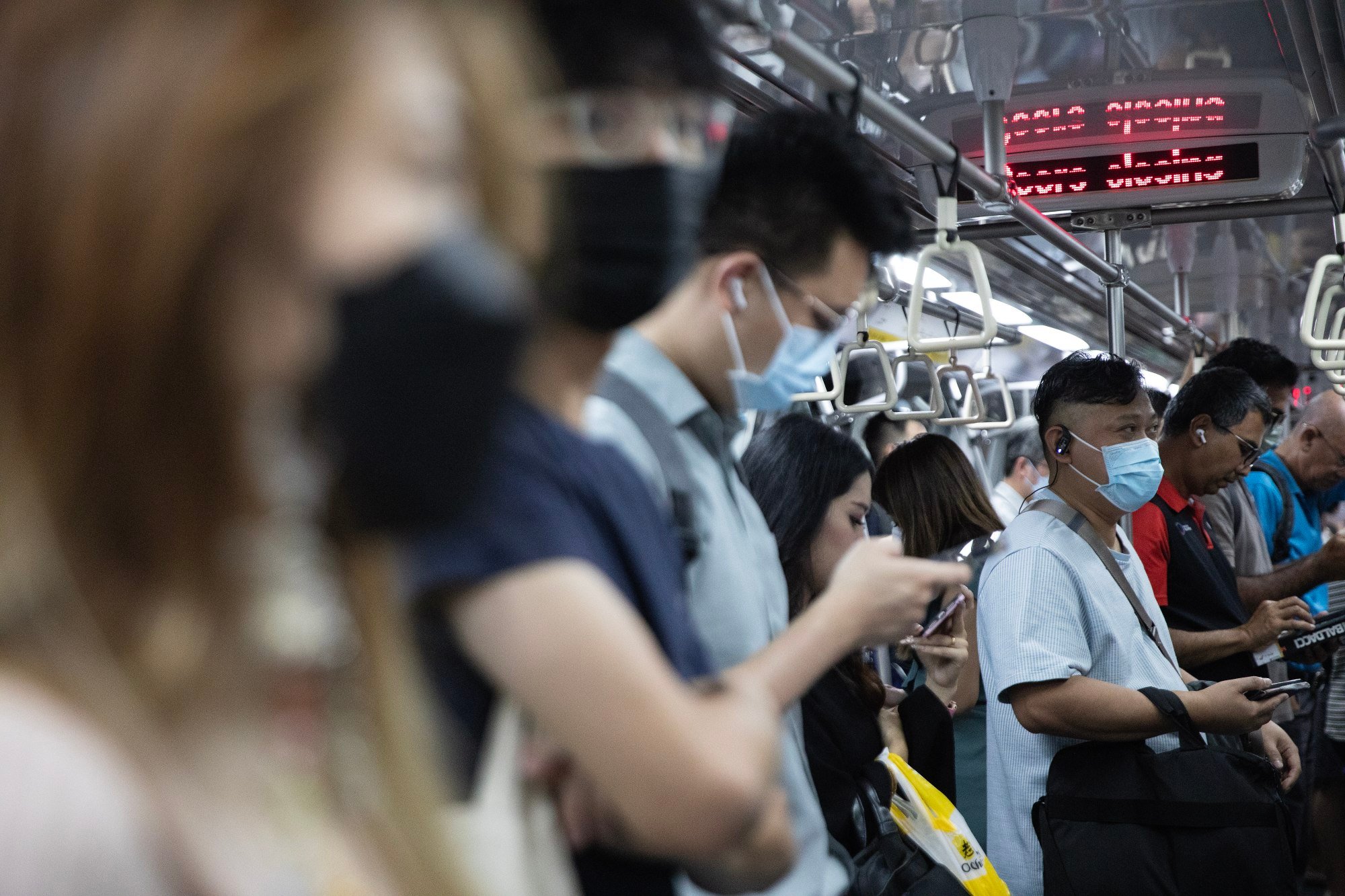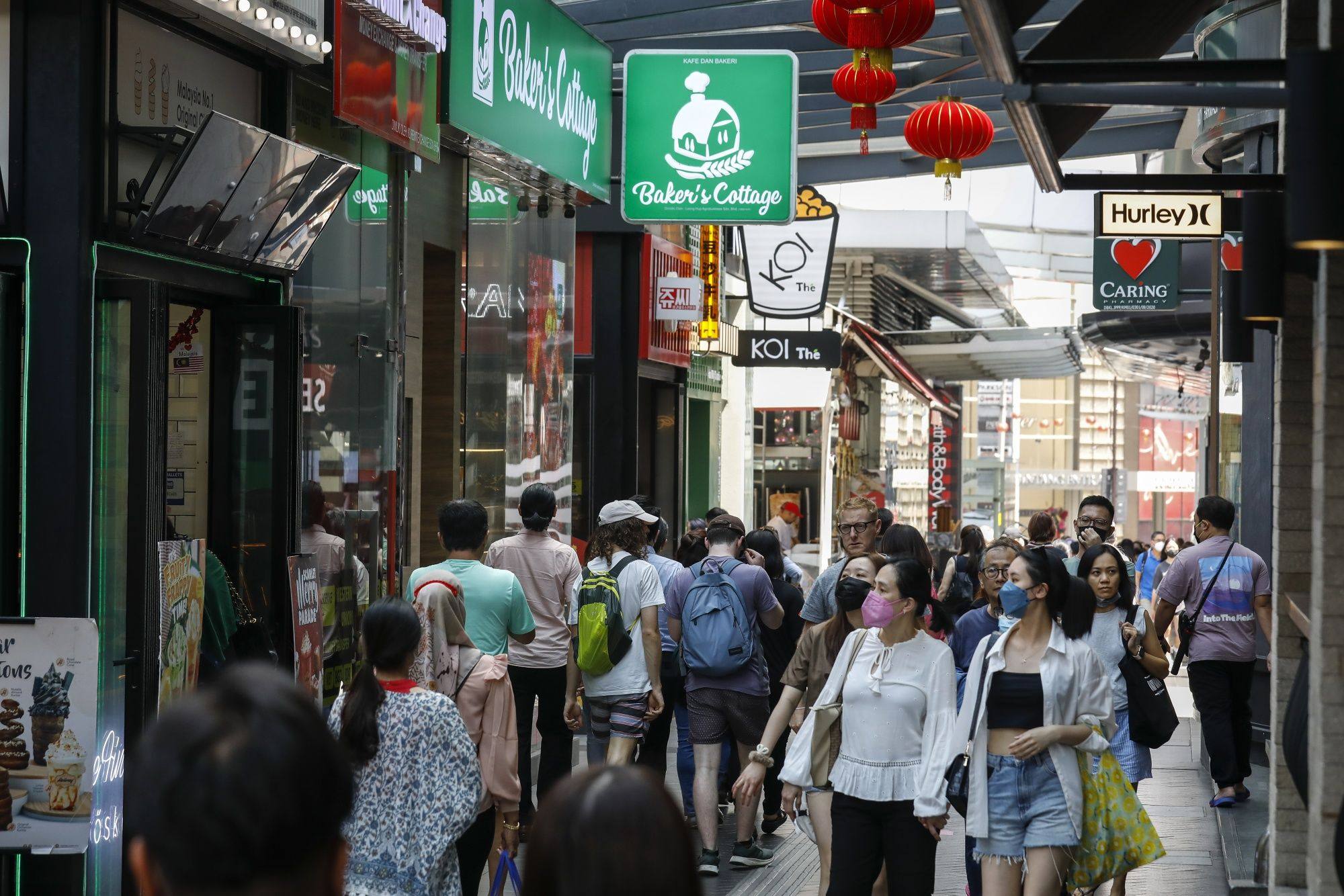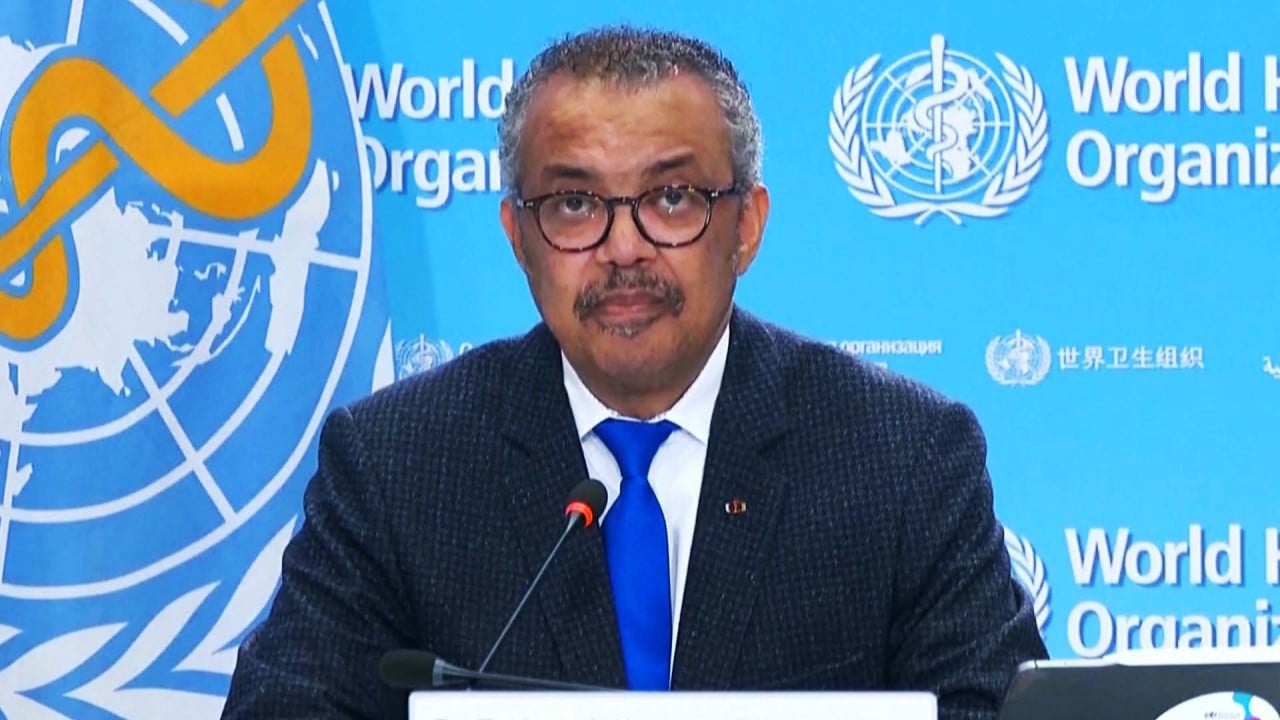Worried Singaporeans mask up amid rise in Covid-19 cases but won’t ‘dwell on it’
[ad_1]
Covid-19 infections rose to 56,043 in the week of December 3 to 9, a 75 per cent increase from 32,035 a week ago, the health ministry said last Friday.
The number of infections and hospitalisations was on the rise, the ministry said, but has not surpassed pandemic numbers and that the circulating variants are not known to result in more severe illness. It attributed the rise in the number of infections to the year-end travel season and waning population immunity.
Health minister Ong Ye Kung reassured Singaporeans that reintroducing Covid-related safety measures was “the last thing on our minds”.
“Going back will be the last thing on our minds and the last thing on Singaporeans’ minds. But given the kind of healthcare burden we are shouldering, I think we can withstand this quite smoothly,” he told reporters last Wednesday, noting that 60 per cent of the population was up-to-date with their vaccinations, with at least three doses.

He urged Singaporeans to adopt good hygiene practices, self-isolate if they are sick and to wear a mask in crowded spaces.
The health ministry also opened a second Covid-19 treatment facility to ease the crunch on hospital beds, it announced last Friday. The two facilities can house over 80 patients and the new facility can be expanded.
More steps will be taken to cope with the rise in demand for beds, it said, citing collaboration with public hospitals for contingency planning, ensuring adequate manpower and deferring of non-urgent elective surgeries.
Malaysia faces heat over faulty ventilators bought ‘on WhatsApp’ during Covid
Malaysia faces heat over faulty ventilators bought ‘on WhatsApp’ during Covid
The number of cases has been on the rise, he said, but the situation remained under control and the health ministry has strengthened its five-point Covid-19 management plan – a strategy that involves community tracing through tests and reports and monitoring of healthcare facilities.
Striking a similar tack as his Singapore counterpart, Dr Dzulkefly said: “Do not be alarmed, but at the same time, take precautionary measures.”
Malaysia recorded 20,696 cases last week, a 62 per cent increase on the week.
“We are ready for the possibility of such a surge or wave,” he said, but also urged citizens to wear masks indoors or in crowded spaces, maintain distance from one another, practise good hygiene, and get booster jabs.

Singapore’s healthcare system is under pressure, but it is well-equipped and prepared to tide through this wave of infections and the government is unlikely to reinstate Covid-related measures, experts say.
The only thing that would compel governments in the region to reinstate Covid rules would be a rise in mortality rates or a strain on intensive care unit beds, said Paul Tambyah, president of the International Society for Infectious Diseases. He added that none of these have happened as a result of Covid-19 or influenza.
“So in this instance, Minister Ong is correct and hopefully this wave will pass in the next couple of weeks as all other previous waves here,” he said.
Instead of tightening rules, Alex Cook, vice-dean for research at the National University of Singapore’s Saw Swee Hock School of Public Health, expects more advisories on good hygiene practices, mask wearing and extra precautions for vulnerable groups.
“There are very many people falling sick – including myself – and a sizeable increase in the number of people being hospitalised, yet few people are ending up in intensive care,” he said.
However, both experts have observed that most Singaporeans are exercising personal responsibility in dealing with viruses – with many more people masking up and staying home if they are unwell.
When This Week in Asia visited two malls and two train stations in the northeastern region of Singapore on Monday afternoon, over half of the people there had masks on.
Health authorities are likely to monitor the severity and growth of cases rather than case counts, which “no longer are reliable indicators for how many people are falling ill” since many are unlikely to seek medical attention, Cook said.
Singapore’s Covid cases are on the rise. Most young kids aren’t fully protected
Singapore’s Covid cases are on the rise. Most young kids aren’t fully protected
They are also likely to remain alert for reports of increased mortality or those who require intensive care, especially in children or other groups who were not previously affected by the virus, Tambyah said.
“Right now, it appears that most people have mild illnesses in Singapore and the region so the priority will be to ‘right-site’ these cases in primary care.”
It is also “extremely unlikely” that a new and more dangerous variant of Covid-19 will emerge, he said, noting that every human virus has evolved to become “more transmissible and less virulent” over time.
“Hopefully this is just the ‘normal’ winter surge of respiratory viral infections which accompanied the cold snap in Northeast Asia, but more details would be helpful,” he said.
[ad_2]
Source link


